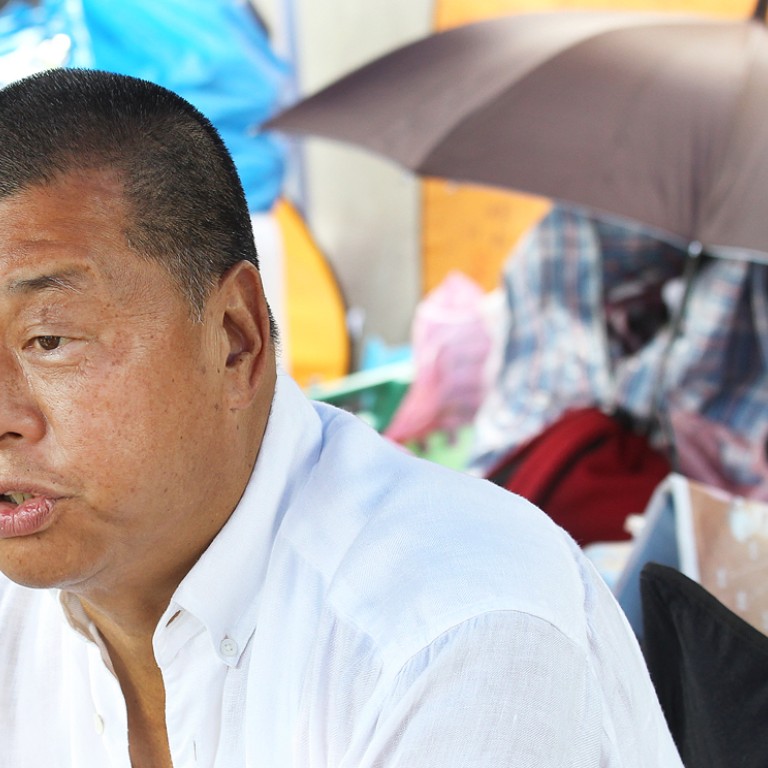
Jimmy Lai Chee-ying says he 'hasn't given one cent' to Occupy Central organisers
Apple Daily boss Jimmy Lai Chee-ying said the impending talks between student leaders and the government would re-energise the democracy movement.
boss Jimmy Lai Chee-ying said the impending talks between student leaders and the government would re-energise the democracy movement, even though the "dialogue definitely will give us disappointments and broken promises".
Lai spoke after a new batch of his confidential documents were leaked to the media on Monday - the third such disclosure since July. The documents suggested that Lai had sponsored Occupy.
Lai said that while he had donated large sums of money to politicians in the pro-democracy camp, he had not given a cent to the co-founders of Occupy Central. His newspaper, though, had given the movement discounts for advertisements.
"I haven't convened meetings with any of the Occupy leaders," Lai told the on Tuesday. "I've never talked to them; not even [co-founder] Benny Tai. They don't need to talk to me because I'm not part of the leadership."
Watch: Hong Kong media mogul Jimmy Lai warns not to expect too much from talks
Lai said he had personally helped the protests by sponsoring Occupy advertisements in his newspaper.
It is unclear whether the talks, scheduled for tomorrow between government officials and leaders of the Federation of Students, will involve Occupy's three co-founders: Benny Tai Yiu-ting, Reverend Chu Yiu-ming and Dr Chan Kin-man.
Some protesters have expressed concern that opinions about the movement's future have split students and the Occupy founders.
"I think the leadership is considering consolidating all the leaders, to have one body to handle the rest of the movement, which would be better," Lai said.
"If there's authority, you can end the movement much faster and in a much better way. But whether this can be done, I don't know."
Lai said that pushing for Chief Executive Leung Chun-ying's resignation and restarting the political reform consultation would be the only way forward.
Lai has been the subject of earlier leaked documents showing he donated millions of dollars to the city's pan-democrats. He has confirmed that he did so.
Local Beijing-loyalist papers that reported the leak called Lai an instigator of the current protests - what and some foreign media have termed the "umbrella revolution" after protesters protected themselves with umbrellas as police used pepper spray and tear gas to disperse crowds.
Lai conceded that the word "revolution" was an exaggeration, but said his paper used it because "it has become a label stuck in people's minds".
The term has been rejected by student leaders and the Occupy founders, who say the movement seeks not to uproot the foundation of the government, but to solve the issues with nominating and electing the city's next chief executive.
Protesters want Beijing to scrap the restrictive framework for the 2017 election, which would allow only two or three candidates to run and who must have majority support from a nominating committee.
Lai rejected claims that he had been involved in planning the Occupy movement.
He also touched on his recent talks with Democratic Party founder Martin Lee Chu-ming and Legislative Council President Jasper Tsang Yok-sing, and revealed he was friends with Tsang.
"We are friends. We always talk. So it's no big deal," he said.
Tsang often acts as a mediator between Beijing and local pan-democrats.
"We are not to disclose what we discussed. We met for the good of the movement, but there's no result," Lai said.
Beijing-loyalist newspapers claim Lai had received backing from the US. Lai denied this and stressed he had a track record of building businesses on his own.

